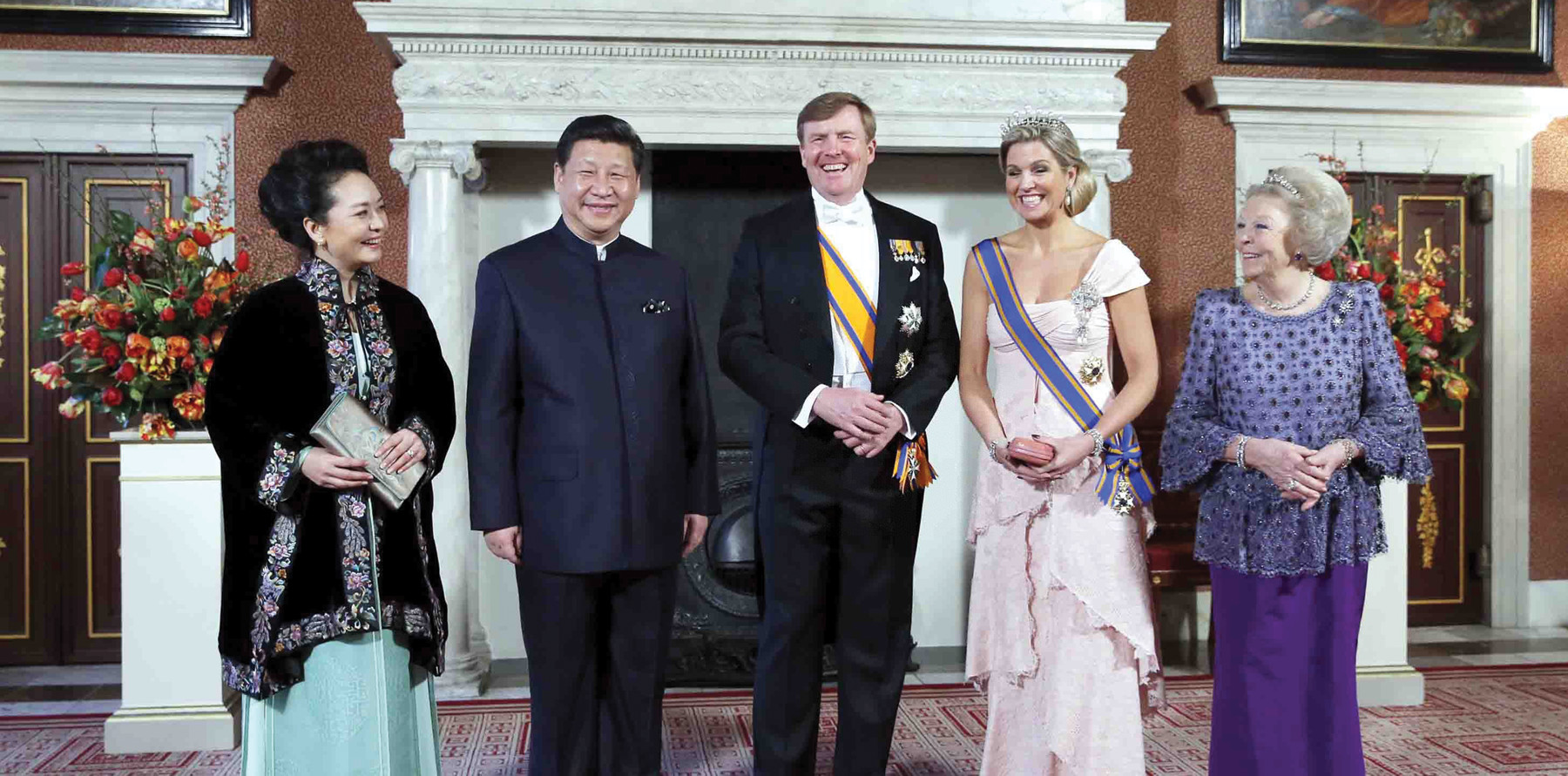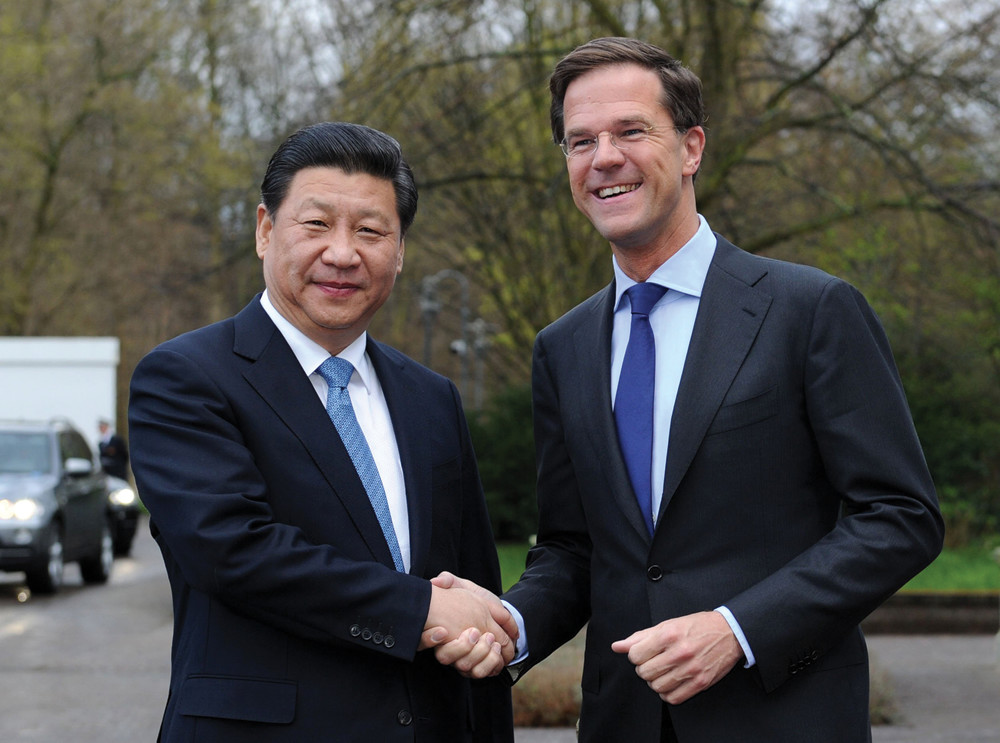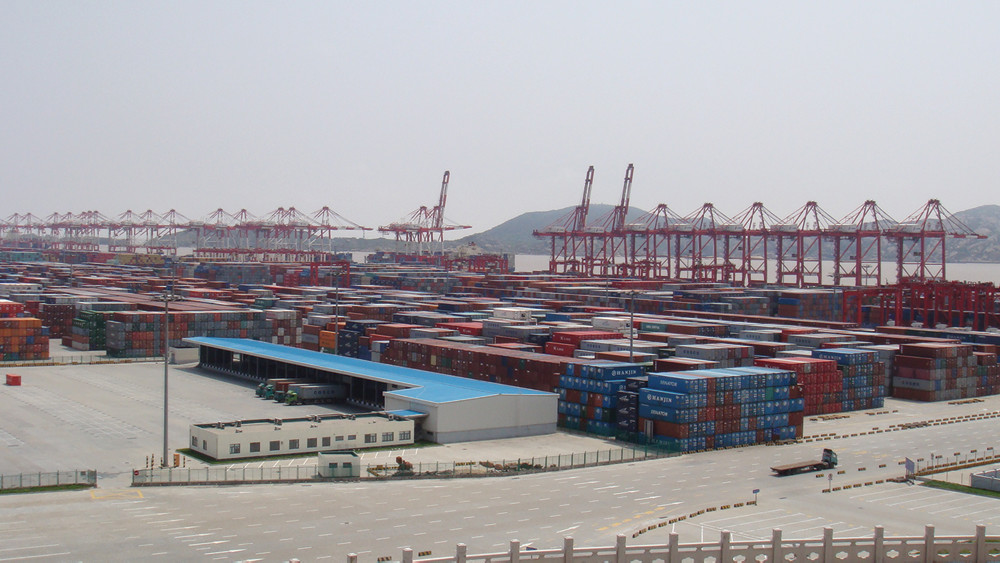Partner or Rival? The Narrow Margins of Dutch Policy-making Regarding China
The recent visit of China’s president Xi Jinping (习近平) to the Netherlands is seen as a milestone in the diplomatic relations between the two countries. Since the foundation of the People’s Republic of China in 1949, no Chinese president has ever set foot on Dutch soil until Xi’s arrival at Schiphol Airport on 22 March. His visit was a clear manifestation of growing goodwill and understanding in the bilateral sphere. At the same time, it was the confirmation of a longer existing tendency in Sino-Dutch contacts to focus almost exclusively on the pursuit of mutual economic benefit – visible most notably in the presence of strong business delegations on either side – while simultaneously avoiding the more thorny political issues. In the course of time, the Netherlands has developed into an important trading partner for China, ranking only second to Germany out of all EU member states. Also, mutual investment levels have recently undergone vast improvement. The focus on ‘low politics’ issues is caused by these rapidly intensifying economic contacts, but it may also be explained as the logical consequence of a power shift in bilateral relations, with China evidently in the driver’s seat nowadays and with the Netherlands in a subsidiary position. The trend towards depoliticisation (by removing the sensitive political ‘sting’ out of bilateral relations), as preferred by China, as well as the continuing process of Europeanising Dutch policies, has affected the margins for The Hague’s policy-making regarding Beijing (北京).
CHINA HAS BECOME A FOCAL POINT of international relations in the 21st century. The country is home to a substantial part of the world’s population and in the past thirty years, its standard of living has grown faster than anywhere else in the world. During the most recent decade, Beijing – with an average of 10% GDP growth per year – has achieved unprecedented economic development and managed to lift a large part of the population out of extreme poverty. The increased weight of China – and the wider Asian Pacific – in the global economy has manifested itself in the strengthening of economic and trade relations with the rest of the world. As a consequence, free movement at sea and political stability in the Asian region are no longer purely regional-Asian concerns, but have developed into a matter of global relevance, also affecting the countries of the European Union, including the Netherlands.

Copyright: Xinhua
In December 2013, the Advisory Council on International Affairs (Adviesraad Internationale Vraagstukken, AIV), an authoritative advisory body of the Dutch government on issues of foreign and defense policy, published its long-awaited report on the expected strategic implications of the rise of Asia in global politics. The Rutte government had asked for this advice because of increasing concerns about the consequences of growing Asian power for the position of Europe, and the Netherlands in particular. The government also wanted to know what the so-called US pivot towards the Asian Pacific, proclaimed by the Obama administration in 2011, actually signified for Europe. With its pivot strategy, US foreign policy aims to veer away from its traditional focus on the Atlantic area in favour of a new orientation on China and neighbouring countries in Asia. The AIV’s advisory report, not yet published in English, was meant as a sequel to the Council’s advice of 2007, then published under the title China in the balance: Towards a mature relationship. The 2007 report had provoked considerable discussion and contention in policy-making circles in The Hague, because of the explicit recommendations it contained, most notably the call for lifting the EU arms embargo imposed on China after the Tiananmen riots (天安门事件) in 1989.
This time, early in 2014, reactions to the AIV’s new Asia report have proved to be much less agitated. This is mainly caused by the Council’s deliberate choice for cautiously worded positions and conclusions. Contrary to 2007, balance and nuance are the main ingredients of the report, yin (阴) and yang (阳) prevail, clear-cut recommendations are difficult to find. Misleadingly, the report’s title suggests a focus on the region (East) Asia, but the major part of the text is devoted to one country: China. In the AIV’s view, China is a threat but also an opportunity; the Chinese are partners but also competitors; the Chinese government has no ambition for leadership, but its assertive policies may very well lead to (regional) conflict and war, etc. With such emphasis on differentiation and modification, everyone can find something to his own liking in the report. Sometimes this way of arguing confuses the reader, for example, when the AIV posits that the Netherlands should pursue multilateralism in the relationship with China, but, if necessary, not refrain from bilateral action. What might also be confusing is when the report’s strongly worded desideratum that Europe and the US should team up together in their Asia policies is followed by the assertion that the Obama administration is not really interested in what the EU really wants. The AIV’s preference for (over-)nuancing sometimes makes reading the report a rather tedious task.

Copyright: Xinhua
It is tempting to criticise the report for this apparent lack of focus. At the same time, one should sympathise with the drafters that overly assertive statements concerning relations with present-day China and East Asia are just not opportune. Particularly for a smaller country like the Netherlands, the margins for an explicitly formulated policy strategy regarding China and the Asian Pacific are extremely narrow. China’s current successful attempts at depoliticizing the bilateral relationship have limited the Dutch government’s space to manoeuvre. Moreover, most of the Dutch economic policies regarding the Asian region are embedded in the larger EU framework and have to a substantial degree become ‘Europeanised’. Hence, seen from the national perspective, a certain degree of modesty and caution seems justifiable.
The AIV report reminds us that Europe is particularly concerned with economic and trade relations with Asia, much more than with security issues. In this respect, EU and US policy approaches are vastly different, as is shown by Obama’s ‘pivot to Asia’ strategy (later rephrased as ‘rebalancing to Asia’ because of the potentially aggressive meaning of the former term). The defense strategic guidance presented by the Obama administration confirms the desire of maintaining American leadership in the world, also in military terms. European stakes are different. Illustratively, an EU official once observed that “the US will be an Asian power and we [the EU] will be an Asian partner”. The EU and the individual EU states consider Asia primarily in terms of (rising) markets and not particularly as a region where national security interests are at stake. This makes the relationship between the EU and China less explosive than the Sino-American one. What the AIV report does very well is to give a clear exposé of strategic developments in China and the East Asian region and a survey of possible consequences of these geopolitical changes.
One of the AIV report’s main recommendations concerns an element of trade policy: in the Council’s view the Dutch government should strive consistently for a joint EU stance on trade relations with China, even if such a position might sometimes conflict with Dutch national interests. In this respect, the AIV points to the widely existing but harmful bilateral trade practices between individual EU countries and China interfering with the common trade philosophy of the Union. EU member states tend to look for short-term advantages and gains in their economic dealings with China, with the likely risk of long-term damage for Europe as a whole in the shape of increased protectionism and the corresponding loss of a level playing field. Recent intra-European divisions on the import of solar panels from China are a case in point here. For a country like the Netherlands with its open economy, its function as a logistical centre in Europe (the port of Rotterdam) and its intensive trade relations with China, such protectionist tendencies could be particularly hurtful. Hence, the AIV’s understandable plea for an extension and strengthening of the EU common market and a clear-cut mandate for the European Commission to act as a central negotiator on behalf of the member states. From that perspective, the guiding line for the Commission should not be protectionism or blind trust in liberal trade, but rather a strategy based on ‘economic realism’: openness where possible, but with room for restrictions. The general tenor of the report is that mutually binding agreements with China are only possible if the EU member states manage to speak with one voice.

Copyright: Ming Cao
With its focus on ‘low politics’ issues, the EU indeed is more a partner than a power rival to China. However, despite the lack of a sharp political edge, the relationship between China and the EU has encountered serious problems, recently. Negotiations between Brussels and Beijing about a Partnership and Cooperation Agreement have arrived in difficult straits since 2008. This has mainly to do with internal divisions within the EU, caused by the financial crisis. Since the start of the crisis, quite a few EU member states facing the problems of rising public debts and falling income, are in search of attracting Chinese investments to stimulate their own economic performance without asking China for reciprocity in the opening of markets for European companies. Opposite to those is a group of EU countries less hit by the crisis and more inclined to confront the Chinese government with demands of reciprocity in trade and investment. The Netherlands belongs to the latter group. Before the start of the crisis in 2008, it was easier to bring member states on one line regarding trade matters with China. The fact that this has changed considerably in more recent time, has been an extra motive for the AIV to emphasise the importance of a common European stance.
From the AIV’s report it becomes clear that the Netherlands perceives present-day China more as a partner than as a rival. The report also confirms the notion that the room for independent Dutch policy-making towards China has become extremely narrow. This is caused by two main factors: China’s preference for depoliticising diplomatic relations and the enduring process of framing Dutch policies into the overarching EU framework. European multilateralism limits Dutch autonomy, but also provides chances: it offers the Netherlands the possibility to hide behind the EU shield in stormy times, being less exposed to China’s policy ambitions than would be the case in a purely bilateral setting.
 Share on Facebook
Share on Facebook Share on Twitter
Share on Twitter Share on LinkedIn
Share on LinkedIn